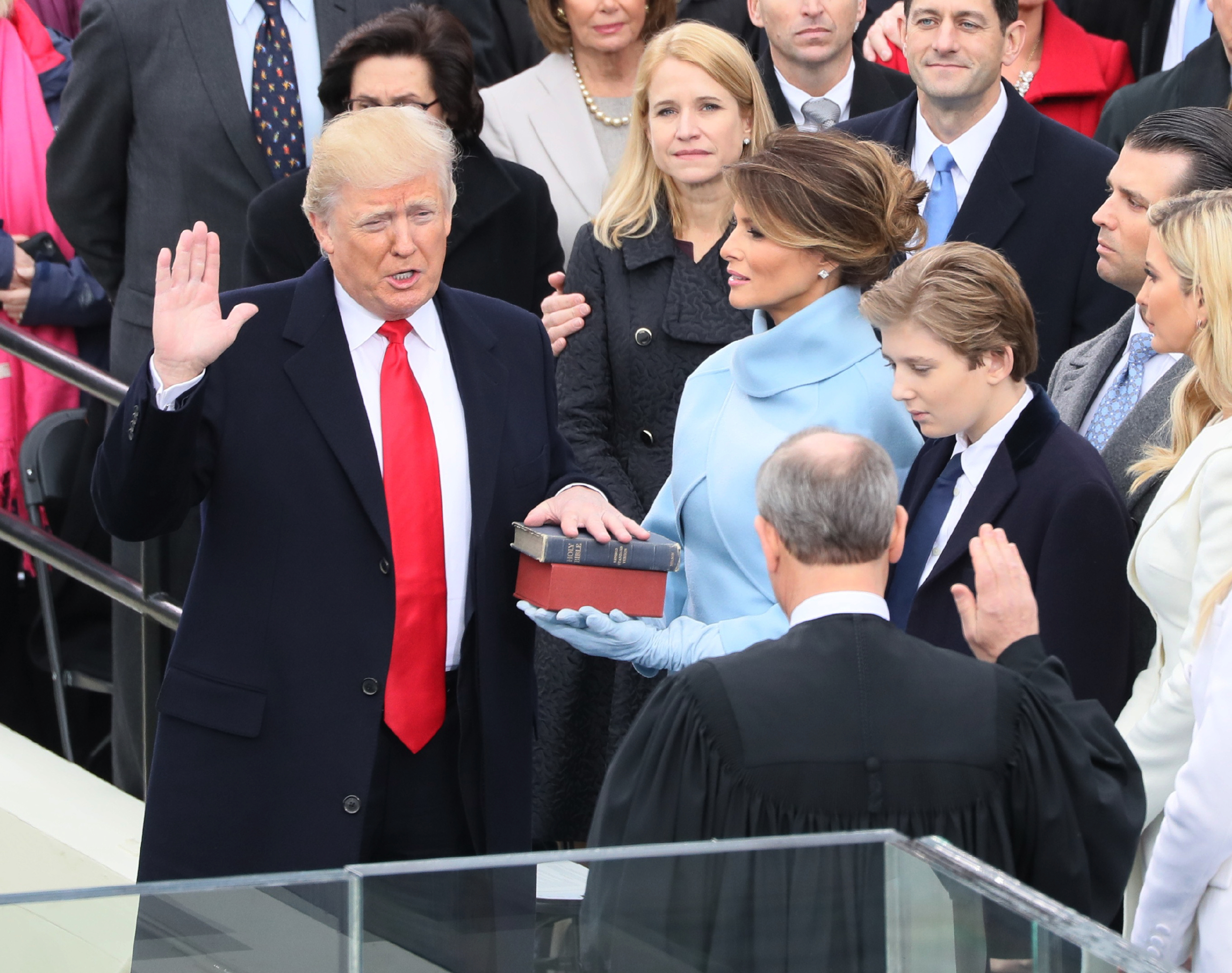#TrumpInauguration
At the lead of the government he is expected to give answers and direction. The message of Pope Francis is to be read in those terms, with emphasis on marginalised people, giving prominence to the facts. In an interview published by El Pais on January 22 the Pope declared: “We shall wait and see: we can’t be prophets of doom.”

The forty-fifth President of the United States has finally taken office. He delivered a muscular speech, in his own way. He talked out all the themes that characterised one of the most low-quality election campaigns in the history of the United States, projecting them on the global scenario: change, reversal of priorities and of relationships, making America great again: America first.
This adverb, “again”, mentioned nine times, encompasses the gist of the matter. Rather than focusing on new horizons, typical of Obama’s first term, there emerges the intention to interpret the frustrations – along with the yearning for protection and compensation- of a large part of the population who feel disoriented and bewildered by transformations, which, at the end of the day, benefited only few, comparable to a new form of trahison des clercs, the betrayal of the elite groups, of the establishment.
Hence, “again.” But what does it mean exactly?
That is the question raised by Trump. He bet on the new divide, the fault line separating those inside from those who are or feel left out. And he won.
The issue is “the people”, hence, the question of democracy.
The games of a new phase are on. We will soon know whether the US Presidential election resulted not in a succession but in an alternative – as occurred in 1801 and in 1829, just to mention some of the most far-dated occurrences.
Indeed, Trump remains an unknown factor, considering that he took the liberty of contradiction, namely, of making contradictory claims.
Moreover, now that he’s at the helm of the government he is expected to give answers and direction. The message of Pope Francis, with a strong reference to marginalized people, gives prominence to the facts: in an interview published by El Pais on January 22 the Pope declared: “We shall wait and see: we can’t be prophets of doom.”
In fact, past November 5, in his address to members of Popular Movements, Pope Francis raised the problem of politics in the present times, namely, “the relationship between the people and democracy.” “This relationship”, Francis said, “should be natural and fluid, but it risks being deformed to the point of being unrecognizable. The breach between the peoples and our current forms of democracy is growing ever greater, due to the enormous power of the financial and media sectors that would seem to dominate them.”
That is the point: it’s the beginning of a complex administration for all.
In the interview to El Pais the Pope guarded against the repetition of the events of 1930-Germany: economic crisis and populist responses. But history is not the teacher of life. “In moments of crisis, discernment doesn’t function.”
Thus the crux of contemporary Western politics is that large segments of the population, bewildered and disoriented, require veritable answers. If not, limiting the response to the condemnation of so-called populism, a deeply ambiguous term, risks producing only heterogony of ends.